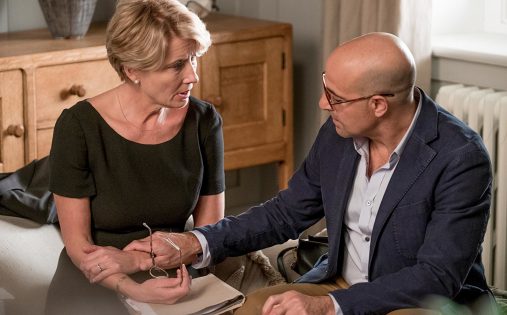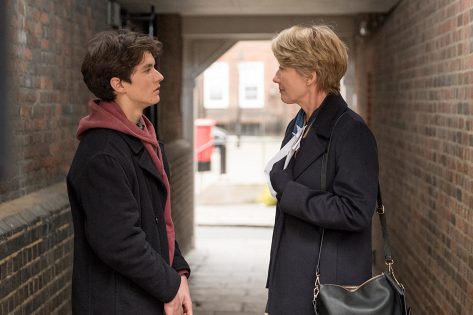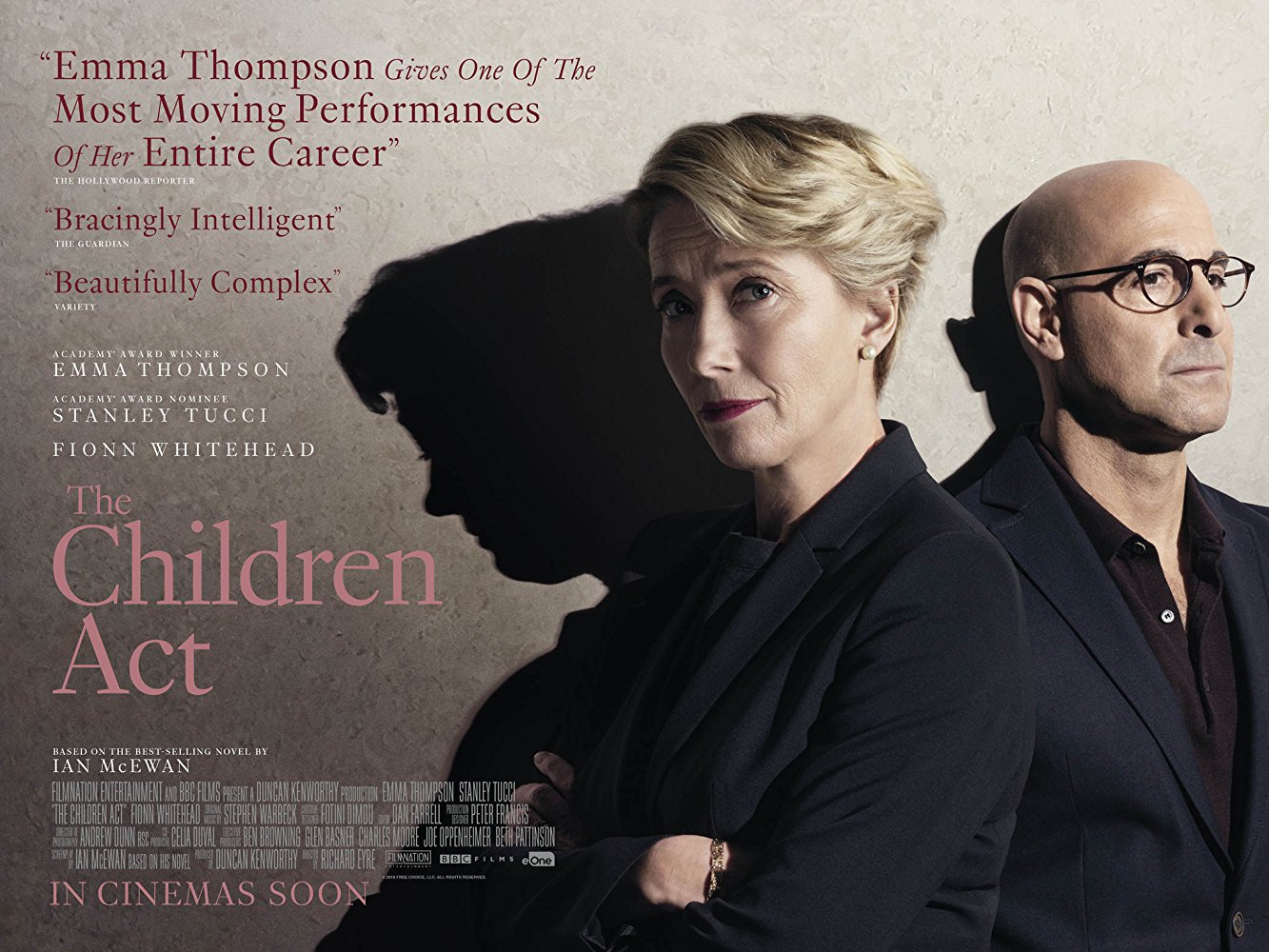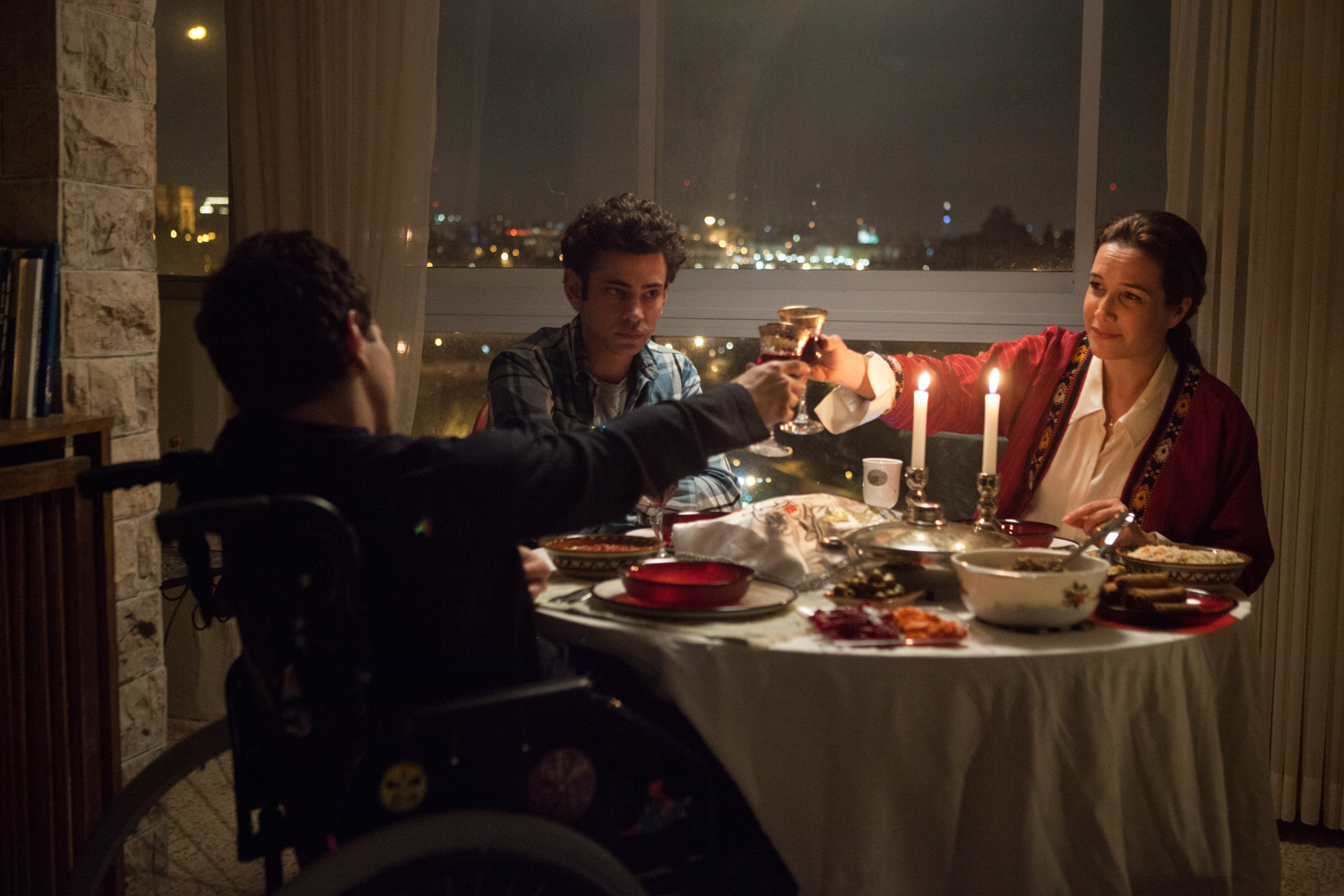EMMA THOMPSON IN THE COURT OF MORALS
☆☆☆
By Sofia Mogno
To become a highly respected judge, Fiona Maye (Emma Thompson) has neglected her husband (Stanley Tucci), refusing children. Her unshakable wit and decisions have granted her the respect of all her colleagues, but not the love of her husband Jack, who decides to engage in an affair, letting her in on it beforehand to remain “morally right”. After ruling the death of one of two Siamese twins in order to let the other survive, Fiona gets into a questioning spiral, which puts her career and life’s priorities at a stake. In the meantime, the missing communication between her and her husband leads the marriage to a stagnant point. Caught in the doubt of whether the law or moral should have prevailed in that trial, Fiona is appointed to a new, arduous case: a seventeen-year-old guy, Adam (Fionn Whitehead), refuses to get a blood transfusion being a Jehovah’s witness. According to the Children Act – which gives the movie its title – the 3 months separating him from being 18 gives his parents the right to decide for him and “we are in a court of law, not of morals”. Maybe because of the regret, maybe because of the special condition, Fiona visits Adam in the hospital and although impressed by his firm belief in God even facing the consequence of death, Fiona rules that the boy has to be cured against his will, to be saved “against himself”.

This decision becomes a turning point in both Adam’s and Fiona’s life. The former starts questioning the importance and solidity of the basis of his life (his religion), the latter her marriage and her unbreakable decisions. That’s how personal beliefs of the two start influencing one another, dragging both Adam and Fiona into new doubts, new desires, new questions, for which they cannot find an answer. Is there a universal morale, a law that has to be respected above everything? Or does individual belief matter more in the end? And, could our individual morale be harmful to others? The movie unfolds, following Fiona and Adam’s destructive, and enriching relationship, leading to one, great truth: there is no right or wrong, but only choices that we have to take, that give meaning and shape to the essence of life.
Produced by Duncan Kenworthy, who is known for comedies like Love Actually. The Children Act is a slow-paced drama set in contemporary London, which leaves the viewers with a bittersweet feelings about the real meaning of all the events and the ending itself, as it is also the ambiguity between right or wrong, moral or immoral. It is based on Ian McEwan’s masterpiece and original screenplay. It deals with the inner and profound fights of the soul and humanity like many other of the author’s works, in The Children Act, Ian McEwan relies less on action and more on character. The director, Richard Eyre, is brilliant in dealing with silences and unspoken words, which gives voice to this missing final answer. After 10 years, director Richard Eyre comes back to the big screen to tell us this story of contrast and ambiguity, of feelings and reason, with the density which has always characterized his works, from Iris to Notes on a Scandal. Indeed, the camera focuses more on the characters, rather than on action, making inner feeling arise. This makes the movie slow and dense but allows the viewer to stop and think about the subject matter.

The Children Act is not the typical movie you would see for a first date, but it is a movie for those moments when you want to stop and take distance from the flux of your ordinary life and think about its essence rather than its events. It is the movie for those who prefer to ask “Why” over “What”. Hence, do not ask yourself what movie you should watch, but why you should not give this movie a chance. Maybe you may discover a bit more about yourself.
The Children Act is in cinemas now. Are you curious? Take a look at the teaser below!




